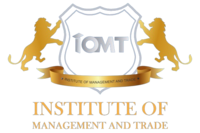
This role has a low level of AI exposure. Core skills such as adaptability, social intelligence, and complex physical tasks remain beyond the capabilities of current AI.
Explore all careersA Workshop Supervisor manages daily workshop operations, ensuring safety, quality, and timely completion of tasks, while leading and organising staff.
Get qualified to work as a Workshop Supervisor with a course recognised across Australia. Speak to a training provider to learn more.







In Australia, a full time Workshop Supervisor generally earns $2,200 per week ($114,400 annual salary) before tax. This is a median figure for full-time employees and should be considered a guide only. As you gain more experience you can expect a potentially higher salary than people who are new to the industry.
 Courses.com.au Team
Courses.com.au Team
This number of people working in this field is likely to grow strongly in coming years. There are currently 31,400 people employed in this industry in Australia and many of them specialise as a Workshop Supervisor. Workshop Supervisors may find work across all regions of Australia.
Source: Australian Government Labour Market Insights
 Courses.com.au Team
Courses.com.au Team
If you’re planning a career as a Workshop Supervisor, consider enrolling in a Certificate IV in Engineering. This course will develop your skills with ferrous and non-ferrous melting and casting operations, testing foundry related materials and advanced welding to code standards. A Certificate III in Engineering – Mechanical Trade may also be suitable.
 Courses.com.au Team
Courses.com.au Team
Browse occupations related to Workshop Supervisor



Are you looking to elevate your career in the mechanical and engineering fields? The Workshop Supervisor courses in Sydney provide an excellent opportunity for individuals keen on honing their skills and advancing their professional journey. With three various courses available, including a beginner’s Certificate II in Outdoor Power Equipment Technology AUR20820 and advanced options such as the Certificate IV in Engineering MEM40119, you will find the right fit for your experience and aspirations. These qualifications are vital stepping stones for anyone aiming to become a Workshop Supervisor in Sydney's competitive job market.
Studying in the vibrant city of Sydney ensures you are in one of Australia's key centres for engineering and technology. The skills imparted in these Workshop Supervisor courses will not only equip you with technical knowledge but also enhance your leadership capabilities. Furthermore, these courses are provided by accredited Registered Training Organisations (RTOs) or recognised industry bodies, ensuring you receive quality education that is respected in the field. Graduates may consider pursuing roles such as Mechanical Fitter or take on positions as Automation Engineers, both of which are integral to the industry.
Completing a Workshop Supervisor course in Sydney opens numerous doors to various job roles. Beyond just becoming a Workshop Supervisor, the skills learned may lead you to careers in fields such as Engineering Technologist or Electrical Supervisor. The experience gained will be invaluable when advancing towards other technical roles like Manufacturing Engineer or positions demanding specialized skills like CNC Programmer. By equipping yourself with the right qualifications, you’ll be on a path to achieving your career objectives.
For those seeking to make a mark in Sydney's engineering landscape, the options within the Workshop Supervisor courses are a perfect start. With access to comprehensive training and a strong network of industries, pursuing a qualification has never been more rewarding. As you gain knowledge from experienced instructors, think about how you can position yourself for future opportunities as an Engineering Consultant or a lead in various technological advancements. Take the leap today and discover how these courses can transform your professional life.